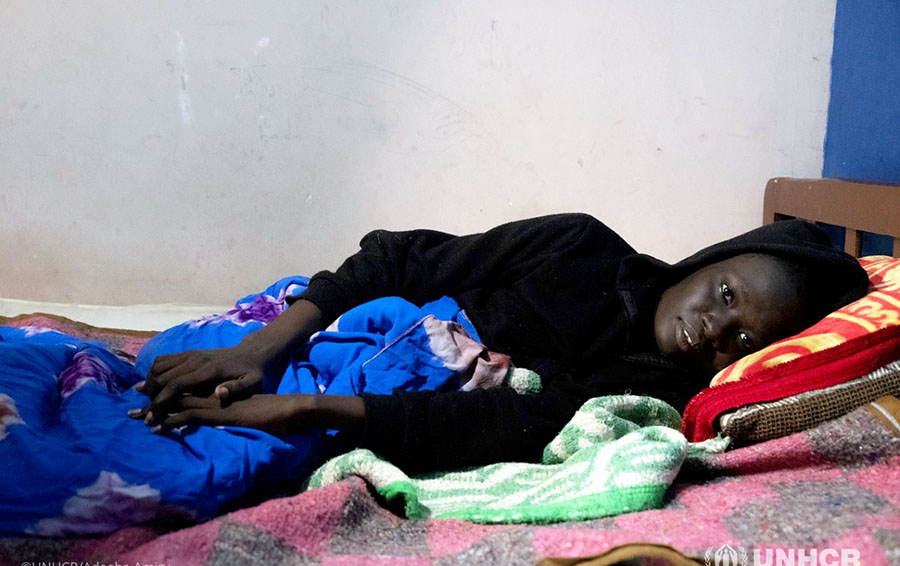
A Sudanese Family’s Fight for a Future in Egypt
Moatinoon follows up
Tayseer, a 25-year-old Sudanese woman, arrived in Egypt in August 2023, four months after the conflict in Sudan began. She is a mother to a beautiful four-year-old girl named Madeleine and a loving wife to a hardworking man.
“If it were up to me and my husband, we would have never left Khartoum. We would have preferred to die at home than face the unknown, if it weren’t for our little Madeleine,” Tayseer says.
The family endured a perilous and exhausting three-day journey from Khartoum to the Egyptian border. The trip through the desert was harrowing. Food and water were scarce, and militias preyed on innocent people who attempted the route.
Upon arriving in Cairo, they settled in a modest neighborhood on the eastside of the city, which has a high refugee population and limited facilities.
“We left Khartoum with nothing but our clothes and the little money we had. By the time we arrived in Cairo, we could barely afford anything. However, the neighborhood is full of Sudanese and other refugees, which makes it feel a little like home,” Tayseer explains.
The young couple are employed as domestic workers to provide for their daughter.
“Life was stable until one day, when I was returning home from work, a car hit me. I was taken to the nearest hospital and diagnosed with a pelvic fracture, vertebral fracture, and a brain hemorrhage,” Tayseer recounts.
As soon as her husband was informed, he contacted UNHCR, who sent someone to facilitate her hospitalization and act as a focal point between the care providers and the family.
“I would have died. I’m grateful for the care I received,” Tayseer says. “My husband and I felt we weren’t alone; it felt like [we had an] extended family.” After a month of hospitalization, Tayseer was discharged and is now recovering at home. She still needs physical therapy sessions to walk properly.
Tayseer is one of more than 600,000 Sudanese refugees and asylum-seekers registered with UNHCR in Egypt, a population that has grown by more than 10 times in less than two years following the outbreak of war in Sudan. UNHCR provides registered refugees with a wide range of services including documentation, protection services and access to healthcare and education.
The Egyptian Ministry of Health and Population grants refugees and asylum-seekers access to all health services provided in its public health facilities. Despite the relatively low cost of healthcare in public facilities, many vulnerable refugees struggling to make ends meet rely on the support of UNHCR and partners like Humaniti Foundation USA to receive the care they need.
“We are honored to partner with USA for UNHCR to support refugees through the lens of compassion and dignity,” shares M. Firaaz Azeez, Global Executive Director of Humaniti. "This partnership delivers on our promise of making an impact and bringing hope to our neighbors in need around the world.”

